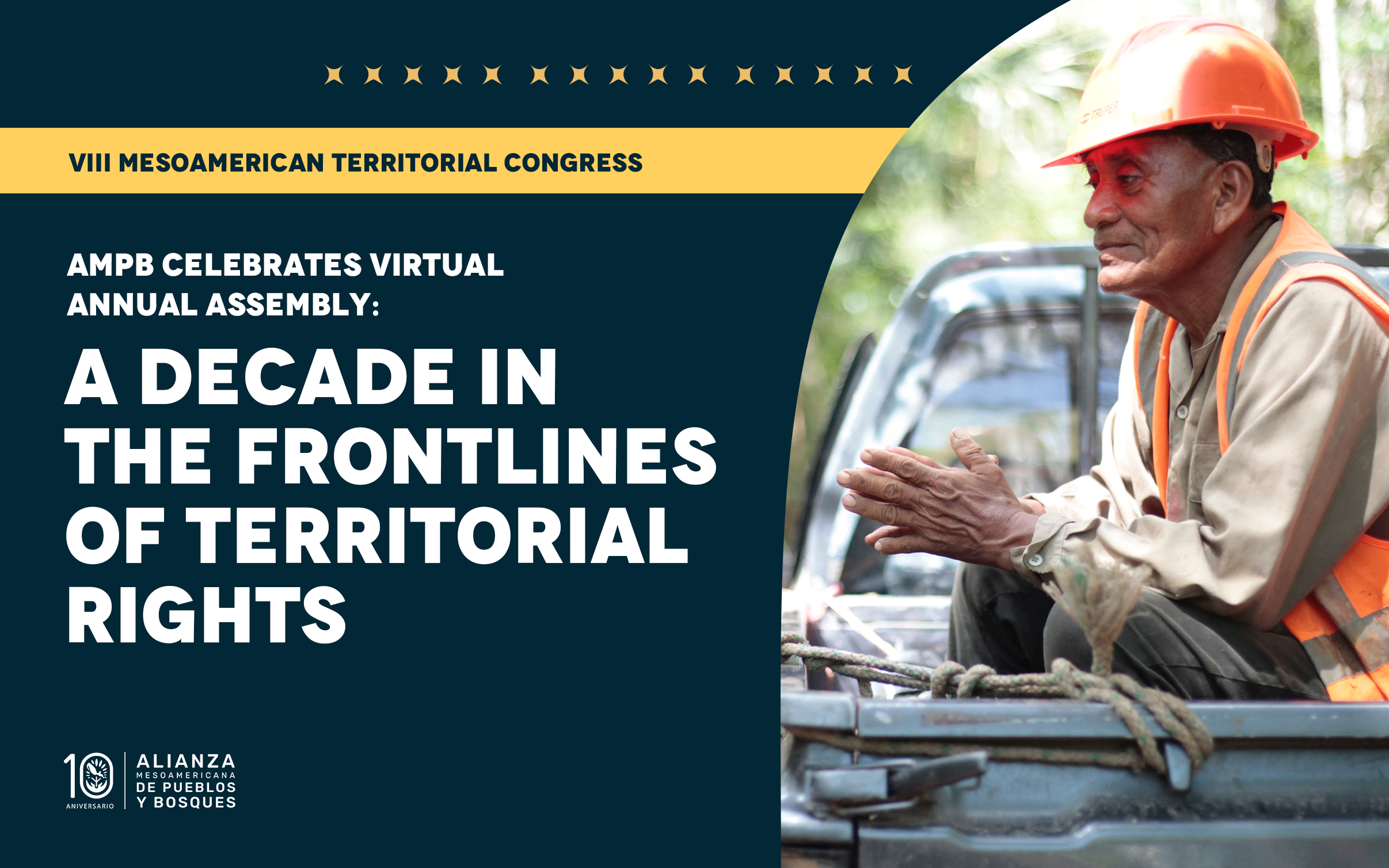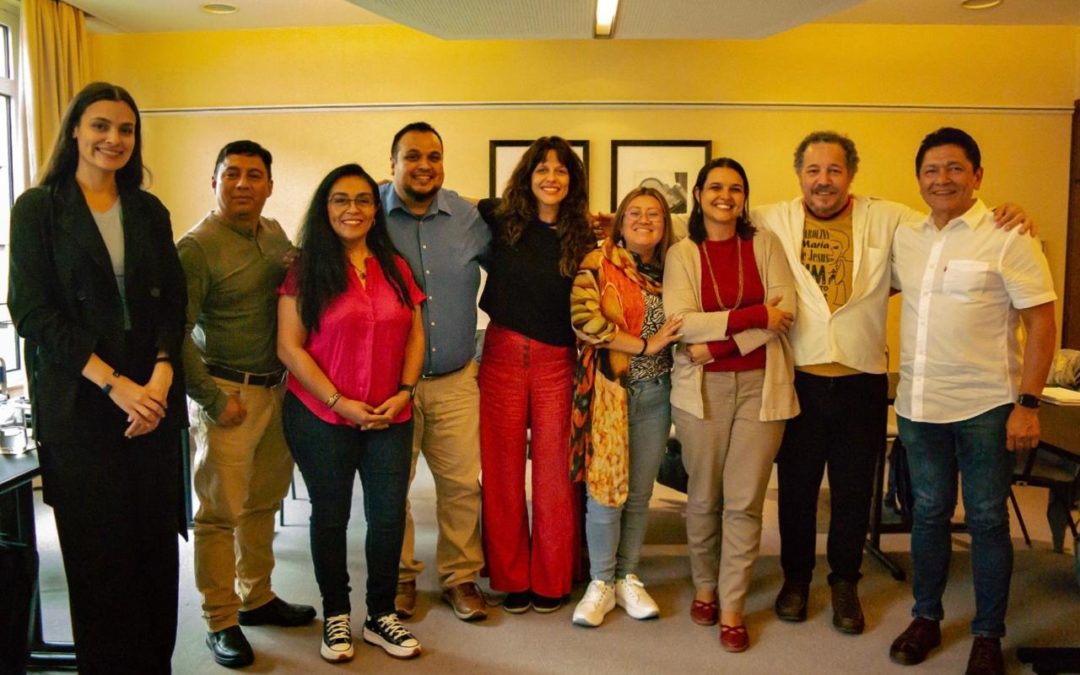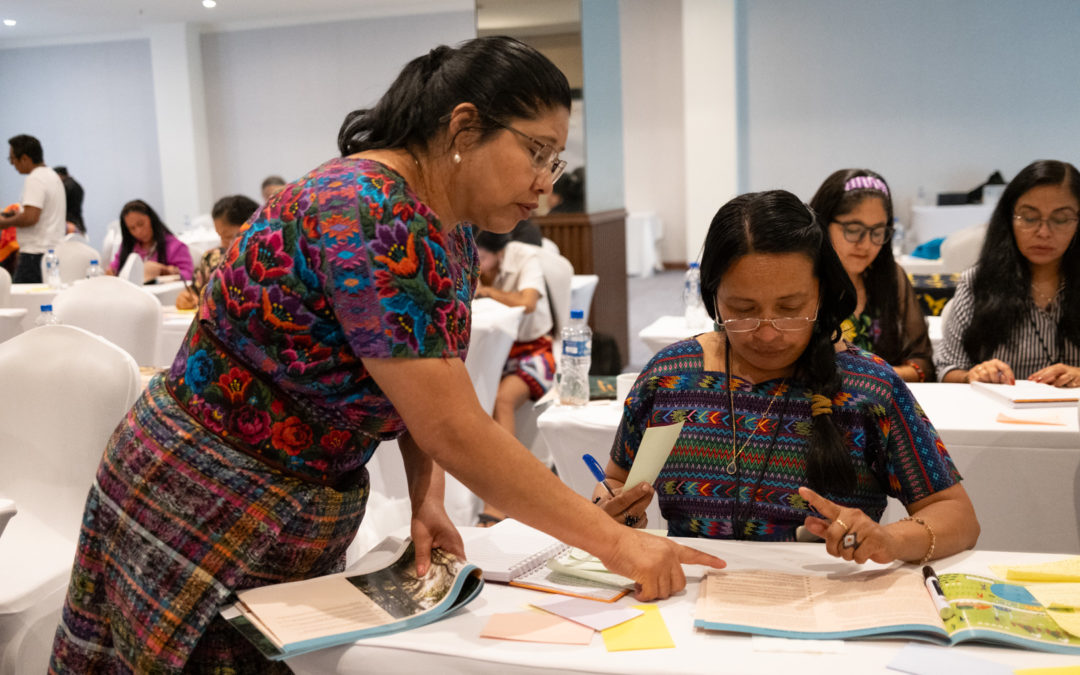The Mesoamerican Alliance of Peoples and Forests celebrates 10 years of promoting, defending and implementing the rights of indigenous peoples and local communities and, as part of the celebration, held its Annual Assembly this Thursday, December 10 during the VIII Mesoamerican Territorial Congress.
As part of the ceremony, a reflection of the journey of its first decade was held to review the achievements and understand the challenges that the next 10 years present.
A decade of struggle and progress
In its first decade, the AMPB has made the processes to defend and ensure the implementation of territorial rights internationally visible. In 2017, an additional 4.58 million hectares were titled and designated for the use of indigenous and local communities.
La construcción de capacidades y la promoción del intercambio de conocimientos entre sus miembros ha sido de vital importancia en ese tiempo. En particular, la evolución de la Escuela Mesoamericana de Liderazgo, capacita a jóvenes de la región para educarlos en conceptos clave de gobernanza territorial y cambio climático, y desarrolla sus capacidades técnicas como en el uso de drones para el monitoreo forestal comunitario y el manejo de redes sociales para construir campañas efectivas alrededor de derechos forestales.
Building capacities and promoting knowledge exchange among its members has been of vital importance in this time. In particular, the evolution of the Mesoamerican Leadership School, which trains young people in the region on key concepts of territorial governance and climate change, and develops their technical capacities such as the use of drones for community forest monitoring and forest management, and social network management for effective campaigning around forest rights.
In 2018, the Coordinator of Territorial Women Leaders of Mesoamerica was born with a call to strengthen political participation and access to climate funds for women community leaders. Since then, the space has grown and is positioned as a unique voice in the region.
In November 2020, AMPB launched a pilot program for the Mesoamerican Territorial Fund, developed in conjunction with key regional partners and that aims to channel direct climate finance to community and indigenous forestry organizations. Through the pilot, it works with its members to test the concept and ensure that each group has the administrative support they need to use these funds effectively and sustainably, protect their rights, and implement projects that develop their livelihoods.
In the last decade, the AMPB has built strong relationships with other territorial groups outside the region to influence the institutions of power, the mass media, and social networks, demanding the recognition and implementation of territorial rights. As a collective, the Global Alliance of Territorial Communities has appealed directly to presidents, the United Nations Secretary General, Hollywood celebrities and religious leaders around the world.
Challenges faced, lessons learned
The Alliance has managed to significantly advance the agendas of its members despite the obstacles that have arisen during its first decade. The region’s political instability, deepening economic inequality, widespread corruption, and drug-trafficking violence significantly affect the efforts of community and indigenous forestry groups to protect natural resources and promote local livelihoods.
Another challenge is the retraction of protections for civil society by governments in the region, who commit themselves to large-scale agricultural and extractive industries as priorities for economic development. Communities have collided with mining companies, African palm plantations and hydroelectric companies when their operations have infringed on community land rights or damaged key resources. This creates tensions that have led to the criminalization of environmental defenders.
Despite the challenges, the AMPB has learned to successfully mobilize its knowledge and experiences to strengthen each group’s agenda. At the organizational level, members have increased their institutional capacities, as well as their external voice. However, AMPB leaders are aware of the need to build capacity for all groups and gather sufficient resources to do so in a way that is consistent with the objective of providing a platform for dialogue.
Visions for an inclusive and green future
The AMPB has dedicated these first ten years to amplify the voices of indigenous peoples and local communities in the region with efforts at different scales, from providing community training in forest monitoring to organizing high-profile events at international conferences. As a platform for dialogue, it has increased contact and knowledge sharing among forest peoples, but it has also facilitated communication between these groups and politicians, donors and NGOs seeking to shape the future of Mesoamerican forests.
With its leadership, indigenous and local communities have demonstrated their resilience in the face of extreme challenges such as COVID-19 and the impacts of two devastating successive hurricanes (Eta and Iota). They have strived to build solidarity, rebuilding forest-based livelihoods, implementing measures to ensure community health, and working to protect the forests and wildlife of their ancestral lands.
The AMPB defends and claims that the rights of indigenous peoples and forest communities – and support to ensure their full implementation – are fundamental to forest-based conservation and climate change mitigation: A more sustainable and just future cannot be achieved without respect for these rights.



